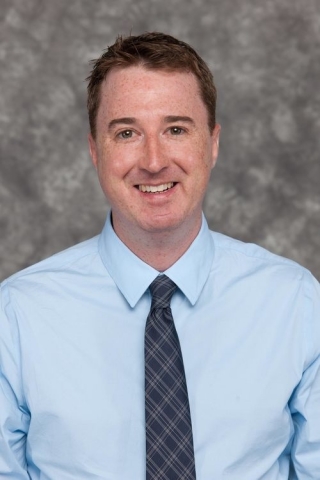DeLTA Center Workshop - Structure and Function: Linking structural properties of the brain to developmental outcomes

This workshop will explore how structural measures of the developing brain (e.g. white matter coherence, cortical volume) relate to developmental outcomes across several timescales. It will feature a keynote address by Anthony Dick (Florida International University).
“Dr. Dick's primary research interests lie in how language develops in the context of other sensorimotor and cognitive processes. He investigates this question using both behavioral and neurobiological methods. For example, Dr. Dick is interested in how the typical and atypical (i.e., lesioned) developing brain organizes to support speech perception and language comprehension in the context of additional visual information from gestures and from the lips and mouth of the speaker. He is also interested in how the developing child uses language to control his or her behavior, or to navigate difficult problem solving situations (e.g., tasks that require “cognitive flexibility”). Dr. Dick uses standard behavioral methodologies, as well as eye-tracking and functional magnetic resonance imaging to investigate these questions. He has authored or co-authored a number of papers and has been supported by the National Institute on Deafness and Other Communication Disorders (NIDCD) to conduct his work."
From the Department of Psychology, School of Integrated Science and Humanity at Florida International University, 28 August 2017.
https://psychology.fiu.edu/faculty/anthony-dick/
Title: The structural connectome supporting language and its development.
Abstract: The Classic Model of language neurobiology—termed the Broca-Wernicke-Geschwind Model—posits a single fiber pathway connection between two primary “nodes” or language “centers” in the brain. More recent advances in neuroimaging have shown, however, that this model is inadequate to support the available data. In addition to identifying that many more cortical regions in the brain support language, research into the “structural connectome” has suggested many more fiber pathways anchor a distributed system comprising cortical, basal ganglia, brainstem, and cerebellar brain regions and their associated connections. Cataloging these connections and investigating their functional associations, including identifying new fiber pathways such as the frontal aslant tract (FAT), is a critical step in understanding how the human brain implements language. It is also critical to understand how the “structural connectome” develops, as changes in the structure and efficiency of neural connections are key contributors to changes in language skill over the course of development. In this talk I will catalog the distributed nature of the structural connectome supporting language, and specifically discuss the use of diffusion-weighted imaging to investigate its development. I will advocate for a model of language neurobiology that rejects the notion of “language modularity” and instead argue that language neurobiology is built upon, and takes advantage of, brain regions and connections that also participate in other traditionally non-linguistic domains (e.g., executive function).
The keynote will be followed by two twenty minute talks given by Peg Nopolous and Bruce Tomblin of the the DeLTA Center.
Peg is a Professor of Psychiatry with the Carver College of Medicine, University of Iowa. Her “lab studies the structure and function of the brain using imaging tools such as MRI and cognitive / behavioral assessment. In the healthy brain we study topics such as brain development over the lifespan, gender differences and social cognition. Disease populations that we work with include patients with schizophrenia, Huntington's Disease, and children with clefts of the lip/palate.”
From the Department of Neurology, Carver College of Medicine at the University of Iowa, 15 September 2017.
https://medicine.uiowa.edu/neurology/profile/peggy-nopoulos
Title: The effects of the Huntington Gene on Brain Development.
Bruce is Professor Emeritus in the College of Liberal Arts & Sciences, University of Iowa. His research interests include developmental language impairments, genetic factors in language development and implicit and statistical learning.
Title: Brain development in adolescence and young adulthood associated with individual differences in language.
+ Coffee, water, and pastries will be provided
